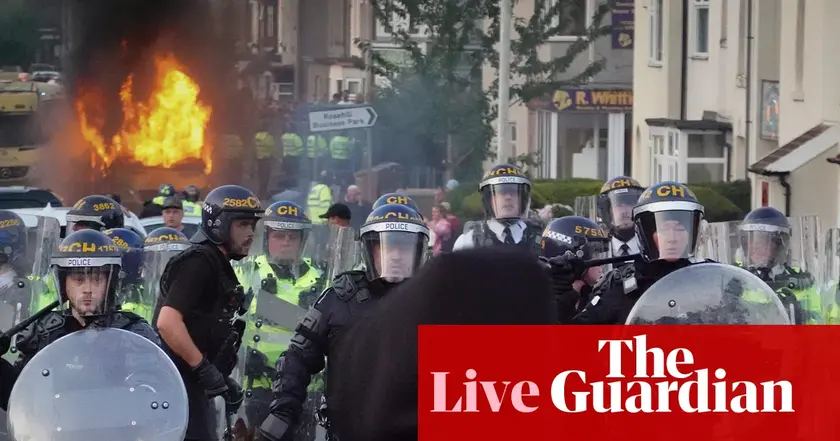T4K3.news
Policy on suspect ethnicity under debate
Family opposes the new guidelines on disclosing suspect ethnicity amid a national debate on crime and immigration.

Family of Bebe King opposes policy to reveal suspect ethnicity amid wider debate on crime and immigration.
Family rejects plan to disclose suspect ethnicity in Southport case
The family of Bebe King has urged ministers to rethink the decision to disclose the ethnicity of suspects in high profile crimes. Police guidelines released this week encourage forces to publish race and nationality information in certain cases, a move welcomed by Home Secretary Yvette Cooper but criticized by anti racist groups and victims’ families. The tragedy in Southport in July 2024 left Bebe, aged six, Elsie Dot Stancombe, seven, and Alice da Silva Aguiar, nine, dead after a knife attack carried out by 17 year old Axel Rudakubana, a Welsh-born boy from a local Christian family. He was named by a judge as he approached his 18th birthday, and 10 others were injured. The attack has fueled a heated policy debate about whether ethnicity helps the public understand crime or fuels prejudice.
Michael Weston King, Bebe’s grandfather, told the Guardian the family was hurt by political figures who sought to gain from their loss. He said the ethnicity of a perpetrator or their immigration status is irrelevant and pointed to failures in Prevent and funding for anti-extremism work. The government argues the plan would increase transparency in serious cases, while critics warn it risks stoking discrimination and misreporting. The row has also touched on wider tensions over immigration and public safety, with protests and online misinformation following the case.
Key Takeaways
"This apparent kowtowing to the likes of Farage and Reform, who surely want such a policy in place, is extremely disappointing"
Grandfather of Bebe King reacting to the government policy
"The ethnicity of any perpetrator, or indeed their immigration status, is completely irrelevant"
Family statement on the policy
"Mental health issues, and the propensity to commit crime, happens in any ethnicity, nationality or race"
Family explanation of the case
"We were glad to see that the rioters received prison sentences"
Family response to post tragedy violence
The policy debate sits at the intersection of transparency and social impact. By tying crime to ethnicity, politicians risk inflaming prejudice and shaping public perception, even when data may be limited or misinterpreted. The family centers the discussion on dignity and memory, insisting that grief should not become a tool for political gain. Yet the case also highlights how crime coverage can escalate tension in diverse communities and shape policy overnight. The challenge for officials is to balance accountability with compassion, and to protect communities from sensationalism.
Highlights
- Grief should not be political currency
- Policy must serve victims not inflame divides
- Crime crosses borders and identities
- Truth should guide policy, not outrage
Political and social risk from ethnicity disclosure policy
Disclosing ethnicity and immigration status in high profile cases could inflame political divides, provoke backlash, and undermine trust in law enforcement. The policy risks being weaponized in partisan debates and may affect community relations.
Policy decisions should center on victims and community safety, not political theatre.
Enjoyed this? Let your friends know!
Related News

UK police guidelines on suspect ethnicity

Police will share suspects ethnicity and nationality

Police guidance on ethnicity and migration status

Migration crime debate tests leadership

Times Square shooting prompts debate on crime policy

Calls for police to release suspects' immigration status grow

Home secretary proposes changes to police suspect disclosure rules

Yvette Cooper calls for immigration status transparency for suspects
